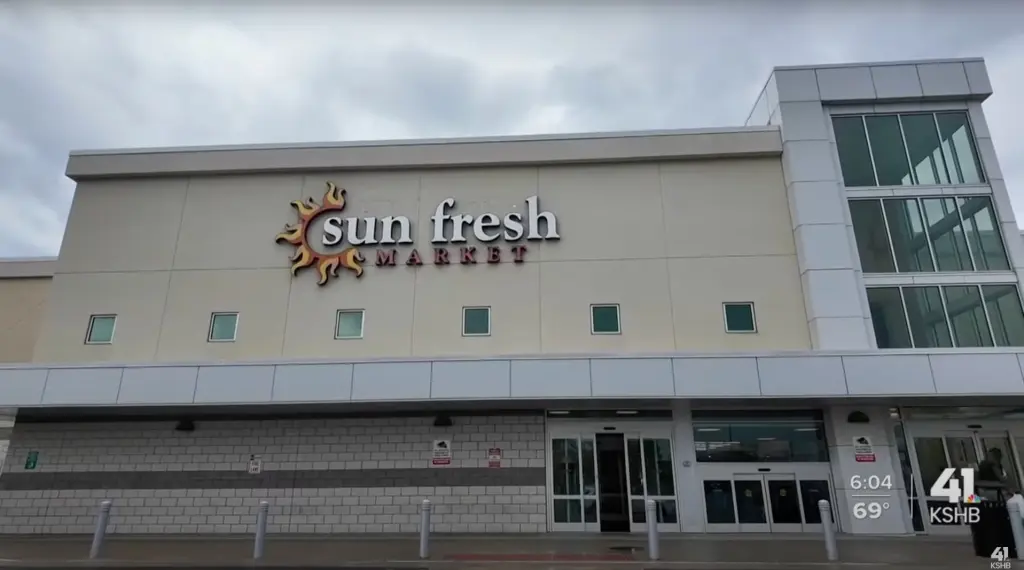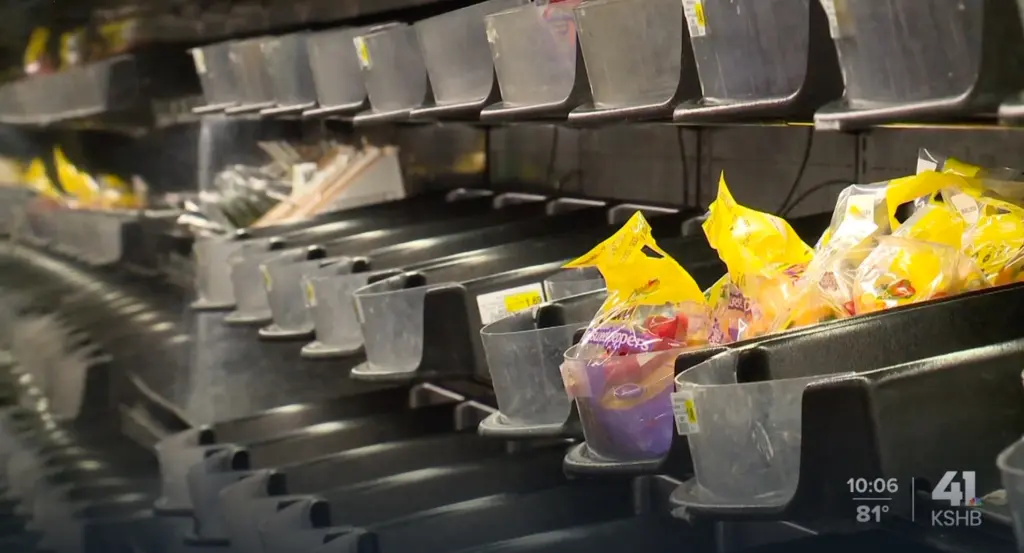By Haley Brown, Craig McCarthy and Matt Troutman. Media: Nypost
He could be biting off more than he can chew.
A viral video showing a desolate publicly funded grocery store in Missouri has drawn fresh scrutiny on socialist mayoral contender Zohran Mamdani’s signature proposal to bring city-owned markets to the Big Apple.
The eerie footage showed virtually bare shelves inside the Kansas City store, with local outlet KSHB 41 reporting this week that a rancid odor also wafted inside the shop.

KSHB

KSHB
The lack of produce and other goods came despite the store being in a city-owned building and receiving millions of taxpayer dollars since opening in 2018, the report said.
“I can tell you today right now it’s damn near dead,” one outraged local told the outlet.
Many viewed the video as prophetic for New York City, with one X user posting, “Watch this, Mamdani supporters.”
Mamdani helped clinch the Democratic mayoral nomination by running a campaign focused on affordability, including a promise to create a network of city-owned grocery stores in the Big Apple.
“It’s like a public option for produce,” he said in one of his slick TikTok videos. “We will redirect city funds from corporate supermarkets to city-owned grocery stores whose mission is to lower prices, not price-gouging.
“These stores will operate without a profit motive, or having to pay property taxes or rent, and will pass on those savings to you. They’ll partner with small businesses and nearby farms and sell at wholesale prices.”

Zohran Mamdani / TikTok
The proposal inspired an explosion of handwringing among some New Yorkers, with some warning of Soviet-style groceries and billionaire John Catsimatidis threatening to close his Gristedes grocery chain.
“We can’t compete with Mamdani opening city-run supermarkets for free,” Catsimatidis has told The Post.
But Mamdani’s plan is largely vague on details, such as whether the city itself will actually run the stores or hand off operations to a private or nonprofit partner.
He has interchangeably used the terms “city-owned” and “city-run” to describe the stores during his campaign.

KSHB
Mamdani said he envisions the initiative as a pilot program that’s more of an experiment.
“That would be one store in each borough — five stores across New York City,” he said on “The Bulwark” podcast.
“It would cost $65 million,” he said before podcast host Tim Miller interrupted to jokingly call them “five Communist stores.”
“It might be an interesting test case to see how poorly it does compared to its neighbors,” Miller said.

KSHB
Mamdani contended that he was more interested in testing a potential practical policy than pushing an ideological agenda.
“No matter how you think about the idea, I do think that there should be room for reasonable policy experimentation in our cities and in our country, where we actually test out our ideas,” he said.
“And if they work, they work. And if they don’t work, c’est la vie, then the idea was wrong.”
The Queens assemblyman has pointed toward the government-owned grocery store in St. Paul, Kansas, a community of roughly 600 people, as a success story.
Brittain Ladd, a supply chain logistics and retail consultant, said government-run grocery stores in New York City could break even, but they could only offer a limited number of basic products and would need to be operated by grocery “experts.”

KSHB
“The program will fail if people who don’t have expertise set it up,” Ladd said.
“These would be very specialized grocery stores. This would not look like a grocery store. It would be a very bare-bones operation,” Ladd said.
“It would be to really just provide the things that people need the most.”
Nevin Cohen, director for the CUNY Urban Food Policy Institute, said Mamdani’s proposal isn’t so far-fetched, noting the city has six public retail markets, such as Jamaica Market, with a history going back to Mayor Fiorello La Guardia in the 1930s.
“They still operate in neighborhoods all across the city, and there, the Economic Development Corporation of New York City owns and manages the building and sets the rents so that there is a mix of neighborhood-serving vendors with rents that are affordable so they can provide low-cost food,” Cohen said.
Cohen envisioned a public-private model prevailing if Mamdani wins in November and moves forward with the experiment, adding he didn’t think city-owned grocery stores would impact existing businesses.
“In New York City, with 1,000 supermarkets, I don’t think it’s likely that the five public markets that Mamdani has been talking about would in any way undermine existing food retailers,” he said.



























































































Discussion about this post